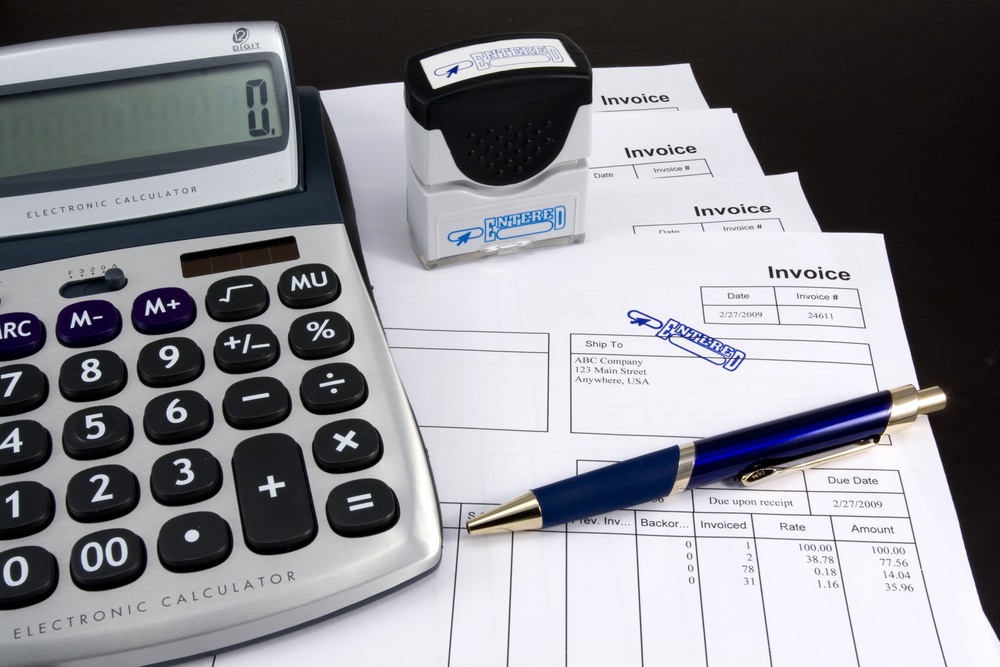WHAT IS THE DIFFERENCE BETWEEN BOOK-KEEPING & ACCOUNTING?
Every business’s long-term success is strongly influenced by the bookkeepers and accountants to organize financial records, balance accounts, astute financial planning, and accurate tax filing.
Accounting and bookkeeping are essential to the health of every flourishing and growing business. Among other things, they guarantee that taxes are paid on time, assist firms plan and achieve business goals by ensuring financial security. A company will struggle to survive systematically and scientifically without them.
What is accounting?
Accounting is a process of measuring and controlling financial information for businesses, companies or corporations. An accountant is a person professionally keeping and interpreting financial records. Accounting works for summarizing, analyzing and reporting about transactions.
What is bookkeeping?
Bookkeeping is the process of recording all financial transactions for accounting. It involves keeping documentation for operations and plans as organizes and updating the accounts on daily basis. On day to day activities, bookkeeping works for data entry, collections, tracking debits/credits and monitoring financial records such as invoices, payroll, tax files or offices’ supplies.
Purpose of Accounting
Main goal of accounting is to check business’ transactions properly and plays an important role as an advisor for taxation process, business performance, business plan, and management of cash flow by reviewing financial statements and comprehending data.
Simply, it carries company documentation/reports (trade, taxes or bills), schedules and data record to boost performance and structure with planning, controlling and checking.
Purpose of Bookkeeping
Main purpose of bookkeeping is to complete the records of financial transactions, accurately. It maintains the data keeping in systematic, chronological and logical manner. Bookkeeping ensure the financial effects for better operations. It includes regular responsibilities like documenting of monetary transaction. Bookkeeping keeps the record comprehensively and up to date.
What does an accountant do?
- Accountants prepare files and records for taxation as their expertise help in minimizing tax liabilities.
- Financial planning is a crucial thing for any business to keep up the record with presenting future plans for growth and sustainability. Accountants can make the best structure in early stages of growing business by providing advises and tips.
- Accountants assist you applying business loans for financing structure and overall performance.
- They help in making policies or company’s terms and conditions.
What does a bookkeeper do?
- Record keeping of documents that displays the credits, debits, and balances for each financial account.
- Upkeep of the accounts chart as little errors might snowball into bigger problems if accounts is put up incorrectly.
- Making sure that documented transactions and time correspondence, each month is accomplished by reconciling bank statements.
- Creating significant financial reports, such as the balance sheet, cash flow statement, and profit and loss statement.
- Managing accounts receivable which may involve sending out invoices, arranging payment terms, ensuring clients pay on time, and locating past-due payments.
- Taking care of accounts payable involves seeing to it that vendors are paid.
- Reading time sheets, calculating deductions, and processing payroll are among tasks that book-keepers may perform.
Objectives of Accounting
- To Keep a systematic balance for all transactions in chronological order
- To workout for Profit and Loss results, periodically
- To Determine the Financial Position of any business
- To maintain balance sheet to check value of assets
- To maintain users financial statements
- Helps in making strong decisions by checking financial conditions, both for present and future stability
- To assist management for data and reports
Objectives of Bookkeeping
- To identify and summarize the transactions of finance
- To make the record of financial transactions of business in systematic order with controlled plans for future
- To provide financial information for management and stake/share holders
- To help in making company or business’ policies
- To identify errors in business
- To operate the business in scientific manner
- To know business’ financial position and helps in making decisions for tax planning
Difference between Accounting & Bookkeeping
- Bookkeeper is supposed to begin with tracking record and quality control of financial record where as an accountant is a person that analyze the reports for financial record.
- Though the working nature of bookkeeping and accounting is kind of same but the skill set varies accordingly. Generally, bookkeeping involves transaction records which keeps you financially organized while accounting provides consultancy, analysis and advises on tax paying matters.
- For instance, if somebody needs an authentic record keeping, follow the path of bookkeeping meanwhile, keeping same data/record, for better measurement, maintenance and growing business, you need accounting to work side by side.
- Bookkeeping contains daily responsibilities while accounting deals with guidance & advice for such responsibilities.
- Bookkeeping typically belongs of payroll, invoicing, receipts/bills & business transaction recording whereas accounting contains financial statements, reports, budgets, tax return & analysis of business performance along with balance & maintenance.
- Bookkeeping comprised of transactions, posting status of debits and credits, preparations of financial statements like balance sheet, cash flow or income statements, and maintaining balance subsidiaries, ledgers. Meanwhile, accounting deals with adjusting entries, recording expenses, reviewing business financial statements, analysis of cost for operations, completion of income tax returns and aiding the business to take better decision for future betterment regarding finance.
Accelerate Your Business With Tax & Accounting!
Tax Accounting Australia loves to assist clients for their future success. Whether that success is starting with a small business, retiring, or going on a holiday, as a personal tax accountant in Perth we are committed & willing to make our client dream into reality. We know that how your business can be a vehicle to achieving immense success as we take care of your accounting and bookkeeping.

